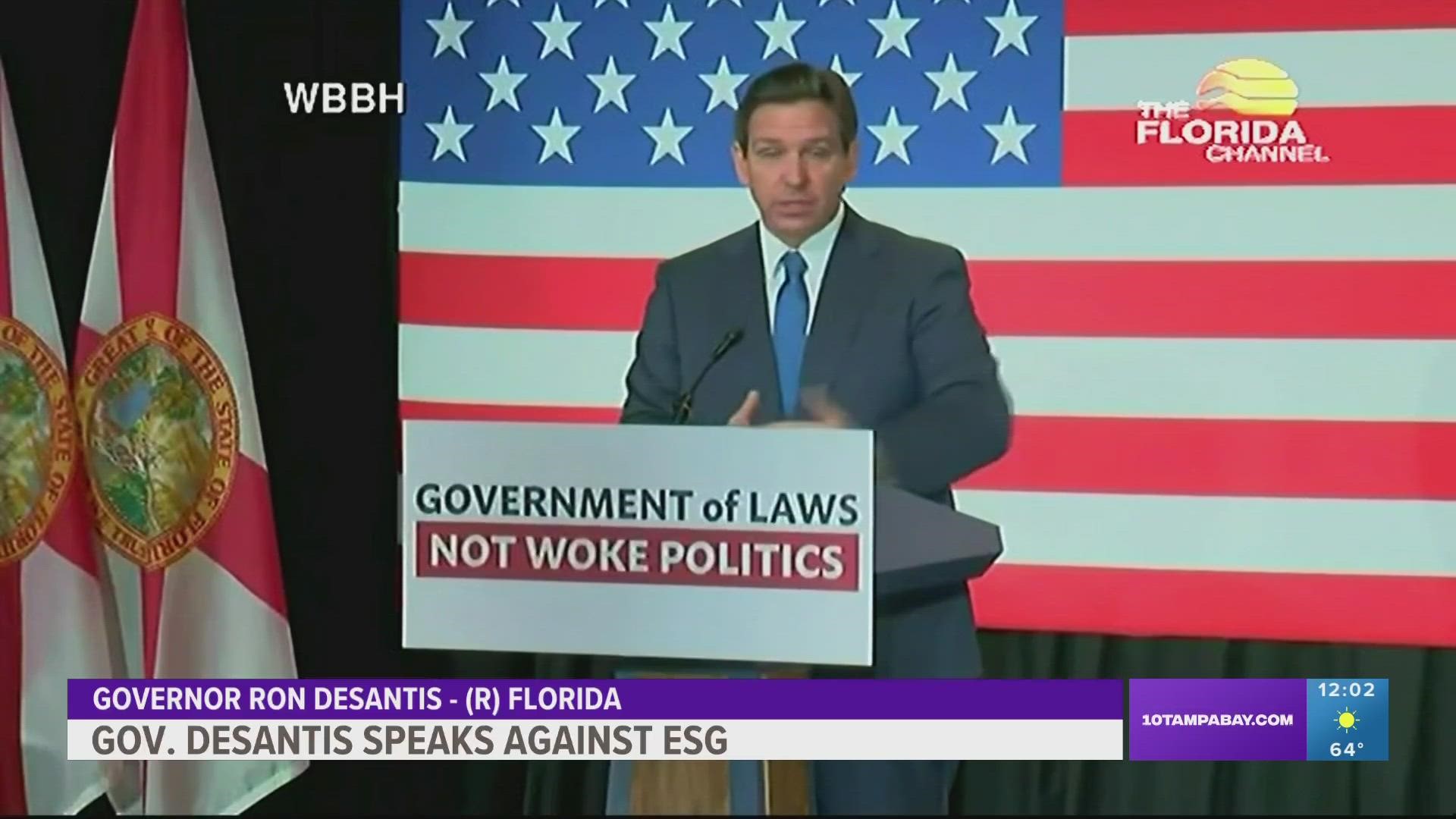NAPLES, Fla. — Florida Gov. Ron DeSantis proposed several legislative measures he says will protect the state's investments from so-called "woke" banking in areas of "environmental, social and corporate governance," also known as ESG.
During a news conference Monday in Naples, DeSantis touted Florida as leading the charge against ESG with numerous proposals to get through the upcoming 2023 regular legislative session.
Last year, the state prohibited the use of ESG in investment decisions for the state pension program. This directed all fund managers to invest state funds in a way that prioritizes the highest return on investments for taxpayers and retirees.
Now, DeSantis says the state will be building off what has been already done by putting the prohibited use of ESG in investment decisions into state law, along with proposing other legislation, including:
- Prohibiting big banks, credit card companies, and money transmitters from discriminating against consumers for their religious, political, or social beliefs.
- Barring financial institutions from considering “ESG Credit Scores” in banking and lending practices to prevent Floridians from obtaining financial services like loans, lines of credit, and bank accounts.
- Permanently prohibiting State Board of Administration (SBA) fund managers from considering ESG factors when investing the state’s money.
- Requiring SBA fund managers to only consider maximizing the return on investment on behalf of Florida’s retirees.
By investing in ESG factors, people are placing their money into companies that score highly on environmental and societal responsibility scales, according to Forbes. For example, a company that may rank at the top of the environmental factor may be a leader in sustainability initiatives.
"We believe...this is an elite-driven phenomenon," the governor said. "It is not ultimately a road that is gonna be good for this country, and it's not gonna be good for other industrialized countries.
"We will stand up for folks in places like Daytona and Destin and we will not be following elites in places like Davos."
In a column published Monday in The Washington Post by Matthew A. Winkler of Bloomberg, the author argued that states like Florida and Texas, which ban ESG, ultimately pay a higher cost to borrow in the bond market — a cost that trickles down to taxpayers.
Compared to California, whose open market does not restrict ESG, Florida pays $4.3 million more for every $1 billion of bonds sold, Winkler wrote.
State Republican legislative leaders, including Senate President Kathleen Passidomo, joined DeSantis in Naples to show their support for the proposals.
Florida House Speaker Paul Renner argued one of the benefits of pushing back on ESG "is to restore America's place of energy independence."
"We're going to do big things this year," Renner said. "Look forward to that."
In a handout distributed during a previous news conference, the state argues ESG standards disadvantage "small, medium, and start-up businesses which cannot cope with increased costs to compete with woke mega-corporations, and subverting the will of their shareholders."
"I think this is gonna be something that's really gonna be great," DeSantis said. "I think you're gonna see other states probably follow Florida's lead on this."
10 Tampa Bay's BriShon Mitchell contributed to this report.
Watch the full news conference down below.

